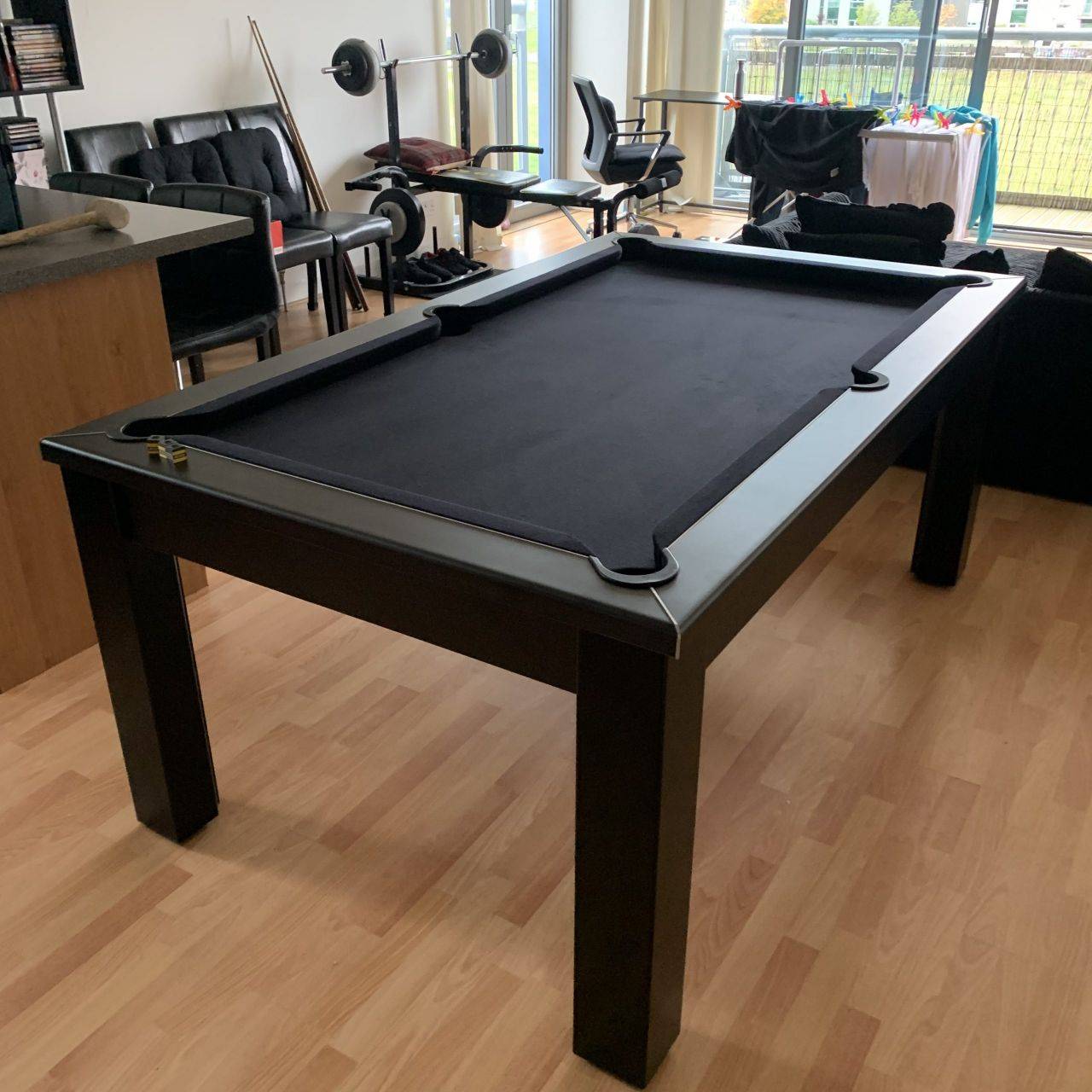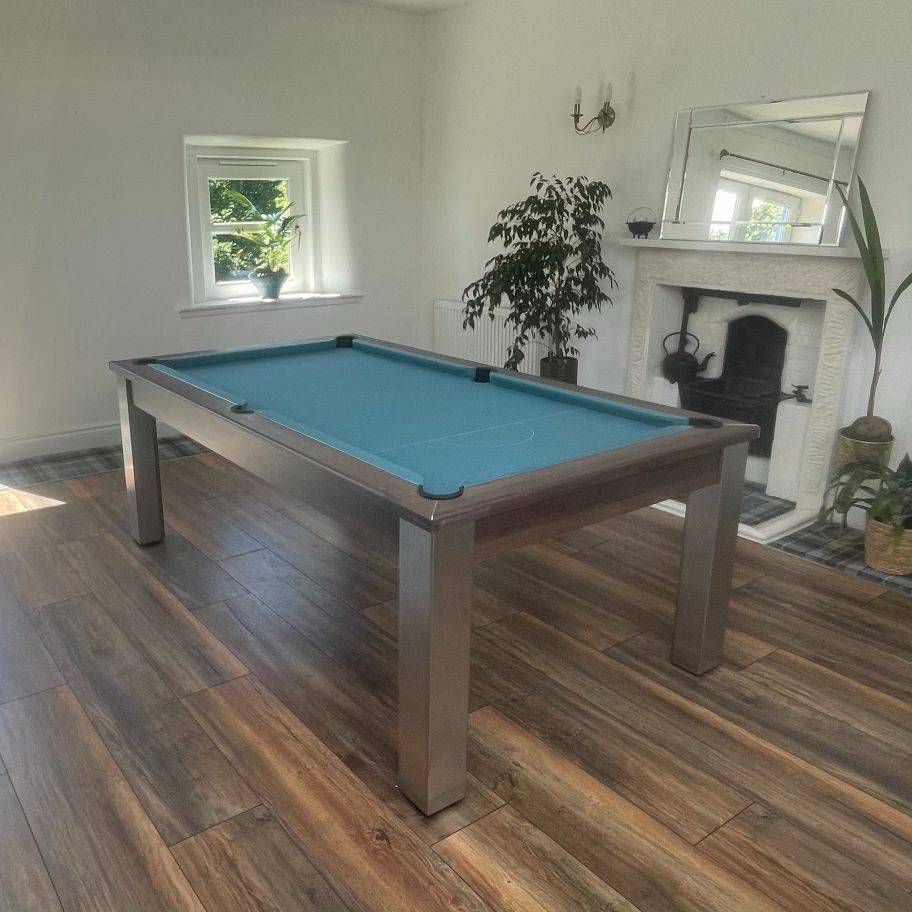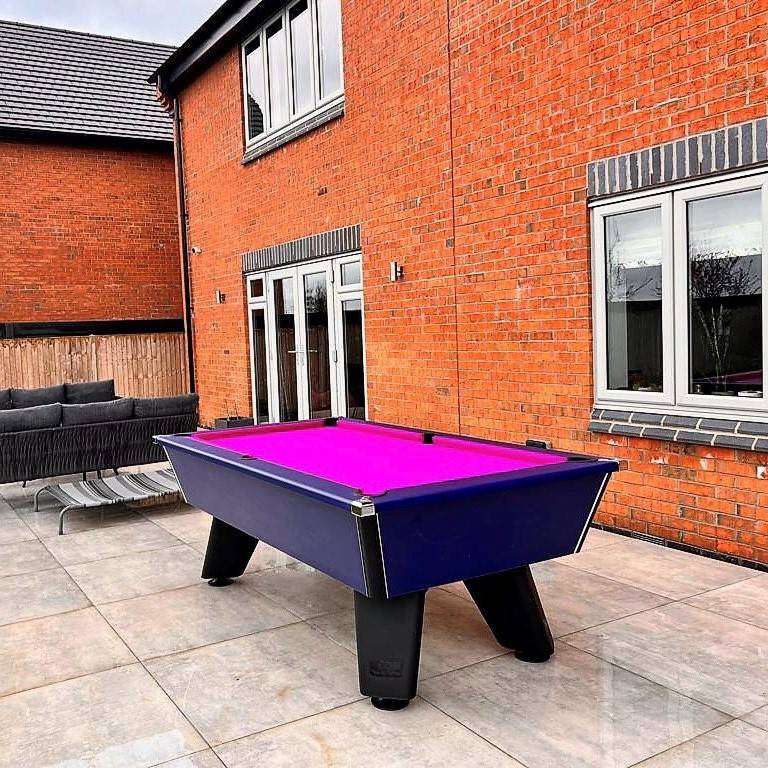Investing in an Antique Pool Table: What You Need to Know
An antique pool table is not just a functional piece of equipment; it is a symbol of artistry, a fragment of history, and often, a sound investment. The intricate carvings, seasoned wood, and the aura of a bygone era make antique pool tables a sought-after collectable for both billiards enthusiasts and antique aficionados. However, before you embark on the journey of investing in one, there are some key considerations to keep in mind. This article will guide you through the nuances of investing in an antique pool table.

1. Recognise the Authenticity
- Age and Craftsmanship: The term 'antique' generally refers to items over 100 years old. So, for a pool table to qualify as an antique, it should ideally date back to the early 20th century or before. Look for signs of age in the wood, the nature of the carvings, and even the type of materials used.
- Manufacturer’s Mark: Renowned pool table manufacturers from the 19th and early 20th centuries often left their mark or seal on their creations. Identifying these marks can be a testament to the table's authenticity.
2. Condition is King
Antique pool tables can be marvellous pieces of history, but their condition significantly impacts their value. Check for any signs of wood rot, termites, or severe structural damage. While minor cosmetic wear can add to the charm, major issues can be costly to repair and diminish the table's value.
3. Period Styles and Design
Different eras had distinct styles and design trends. Victorian tables, for instance, are known for their ornate carvings and opulence. On the other hand, tables from the Art Nouveau period might display more fluid designs with natural motifs. Recognising these styles can help determine the table's age and its potential value.
4. Restoration: To Do or Not To Do
While a well-restored antique pool table can enhance its functionality and aesthetic appeal, over-restoration can strip away its character. If you're considering investing in a table that needs restoration:
- Seek professionals who specialise in antique restorations.
- Preserve as much of the original material as possible.
- Document the restoration process. It not only maintains transparency for potential future sales but also adds to the narrative of the table's history.
5. Slate or Wood Bed
Antique pool tables often come with either a slate or wood bed. Slate beds, while heavier, are preferred by serious players for their flatness and consistency. Wood beds, though not as precise for gameplay, carry a rustic charm and historical value. Consider the purpose of your investment – whether for gameplay or purely as an antique – before making a choice.
6. Provenance Matters
The history or provenance of the pool table can add significant value to your investment. A table with a documented history, previous renowned owners, or a story connected to historical events can be more valuable than a similar table without such a narrative.
7. Size and Logistics
Antique pool tables, especially those from grand estates or palaces, might be larger than the standard sizes of today. Ensure you have the space to accommodate the table. Additionally, consider the logistics involved in transporting an antique, ensuring no damage during the process.

8. The Investment Aspect
Like any antique, a pool table's value can appreciate over time. However, the market for antiques can be unpredictable. It's wise to invest in a table that you appreciate and would like to use or display, rather than purely for potential financial gain.
9. Consult Experts
Before making a purchase, consult experts in the field. Antique dealers, historians, or even specialist auction houses can provide insights into the table's value, authenticity, and historical significance.
10. Legal and Ethical Considerations
Ensure that the sale and purchase adhere to local and international laws. Some antiques might be classified as national treasures and might be illegal to export. Always ensure that the table was acquired ethically by the seller.
Cultural Significance
Antique pool tables, particularly those from the 18th and 19th centuries, often mirror the broader societal norms of their periods. For instance, during the Victorian era, the wealthy middle class, eager to display their affluence, turned to ornately designed furniture and fittings. Pool tables from this period often showcase intricate carvings and rich veneers, a testament to the owners' social standing.
Materials: A Glimpse into Trade Patterns
The materials used in antique pool tables often reveal insights into historical trade routes and economic patterns. Exotic woods like mahogany or rosewood, imported from colonies, indicate both the reach of empires and the taste for luxury items. Similarly, the source of the slate could hint at trade relationships and technological advancements in mining and transportation.
The Art of Craftsmanship
The construction techniques employed can give clues about technological evolutions over time. Dovetail joints, for example, speak of an era when artisans painstakingly crafted each piece by hand. Furthermore, design motifs may reflect popular artistic movements of the time. For instance, an Art Deco pool table might feature bold geometric patterns, reflective of the roaring twenties.
Brands and Makers
Certain manufacturers, due to their exceptional quality and craftsmanship, have stood out over time. Brands like Brunswick, known for their superior construction and timeless designs, can fetch a premium in the antique market. Having knowledge of notable manufacturers and their hallmark designs can be a valuable asset while assessing a table's worth.
Adjusting for Modern Gameplay
While the charm of an antique pool table is undeniable, it's worth considering if it aligns with modern gameplay standards. Pockets, cushioning, and the bed's flatness might differ from contemporary tables. However, some modifications, if done judiciously, can bridge this gap without compromising the antique's integrity.

In Conclusion
Investing in an antique pool table is a journey into the annals of history, art, and sport. It’s an opportunity to own a piece that has witnessed countless games, perhaps echoed with the laughter of past players, and stood the test of time. With the right knowledge, due diligence, and appreciation for craftsmanship, your investment can be both a joy to behold and a testament to the timeless allure of the game. Whether you're aiming for a game night with a touch of historical elegance or seeking a centrepiece for your vintage collection, an antique pool table can be a splendid acquisition.
Are you looking for a Pool Table? check out our pool tables range Pool Tables





